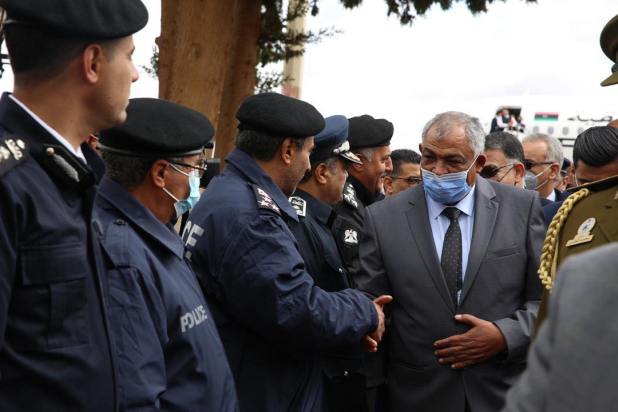
The High State Council (HSC) continues to indirectly seek to prevent the holding of elections. On the other hand, the world continues to push for Libyan elections to be held on December 24, 2021 .
After the failure of the plan to withdraw confidence from the Government of National Unity due to the popular protests from all over Libya rejecting this step, and while the decisive position of the Western countries and the United Nations represented in its mission to Libya supporting the government, the alliance of Haftar and Aqilah Saleh is taking another path to obstruct the elections scheduled for December, and Khaled Mishri, the head of the HSC, reaffirmed his actual anti-election stance by announcing that he is challenging the holding of elections in the Constitutional Chamber of the Supreme Court, which has “sound legal and constitutional foundations.”
The statement of the Deputy Prime Minister, Hussein Al-Qatrani, in which he criticized the performance of the Prime Minister, accusing fanaticism and desertion in the decision because these elections must be a first step, which is escalation with the mass resignation of ministers and agents of the East in the government, and the loss of the position of the National Unity Government.
Libyan politics has become multi-layered and more nuanced and complex than in 2015. Many Libyans have an “Islamist vs. liberal” framework for their lives. That framework still exists as the spectrum with which to judge politicians.
The political scene, since the revolution until now, has repeatedly regained its balance. Libya has moved forward in steps towards reform through the General National Congress, but the Supreme Council of State is still fighting a battle. They and the House of Representatives want to stay in power. Peace does not serve them. Tension, especially across the “Islamist-anti-Islamist” divide.
The statement of protest against the Prime Minister affirmed that it is correct and needs treatment, but not to the point of mobilizing and protesting ministers, agents, and some municipal councils. These reasons could have been addressed in cabinet meetings, or in a private meeting between the Prime Minister and members of the government from the Eastern Province.
People see elections as a mechanism to get rid of most of the current political elite and give a chance to a new group. To rise to democracy, but the public has reached a stage where it wants a change, even if it is for the sake of change. They see no hope in the Supreme Council or the current parliament.
Abdulhamid al-Dbeibah has become popular with big public spending programs after years of the civil war won popularity through populist programs including financial support for young people seeking marriage and investment across Libya’s regions. He could be a frontrunner to win, but his decision could also add to political disputes over the election, which have overshadowed the peace process. On the other hand, Dbeibah had pledged not to run for president when they were appointed to the Government of National Unity, which replaced two rival administrations after years of war.
The law set December 24 for a presidential vote, in the roadmap backed by the United Nations, and parliamentary elections would be held at a later date. The United Nations mission in Libya said it was important to elect the president and parliament on the same day, after which the constitution would be amended and parliament would be formed.
That the registration door for presidential election candidates will open until November 22 and parliamentary candidates until December 7, and that the Presidential Council is composed of a three-person body that has been working since March until now as the transitional head of state in Libya, that there must be consensus on the rules of the elections.
According to the law, the elections in the House of Representatives stipulate that candidates for of the president who has occupied official positions must resign three months before the date of voting. Both Haftar and Saleh did that, but Abdulhamid al-Dbeibah did not. And that the parliamentary elections will be held within 30 days of the presidential elections, it has received amendments to the law from Parliament.












Comments are closed.